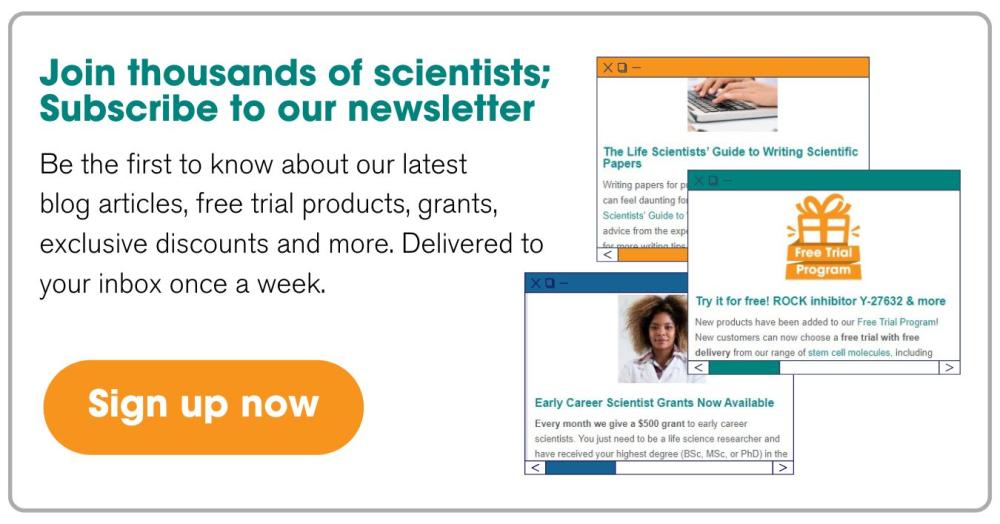Rooted in Research: How to Build a Successful Science Career Without Moving Institutions
For many scientists, moving institutions during your career is seen as a rite of passage—something that’s essential for gaining experience, building collaborations, and progressing professionally. While there are obvious advantages to this approach, it isn’t the only way to build a successful career in science, as proven by Dr. Rachel Perry, an Associate Professor at Yale University, USA.
In this guest article, she shares her personal career journey which has seen her stay at Yale for her entire 20+ years in academia. She offers advice for early career scientists and discusses the many benefits that come with laying down roots in science research.
From undergrad to Associate Professor
My science career at Yale University began over 20 years ago when I arrived in New Haven in 2004 as an undergraduate student. I stayed to complete a PhD in Cellular & Molecular Physiology (2013), then a postdoc (2017), and finally started my independent lab as an Assistant Professor in 2018. Last summer, I was promoted to Associate Professor in the Departments of Cellular & Molecular Physiology, Internal Medicine (Endocrinology), and Comparative Medicine. It's such a privilege and honor to have been able to grow at a place that has felt like home over the past two decades, and I can truly say that this is my dream job.
It was never a conscious plan to stay at the same institution my whole career, but it has always made sense. I’ve applied to other places and considered other options on occasion, but at each new stage of progression the opportunity to build upon previous professional relationships and infrastructure that I knew existed, and that I'd helped to build, always made it make sense to stay at Yale.
Pictured: Rachel Perry through the years at Yale, (l-r) as a freshman in her college dorm, at undergrad graduation, and in a fun knitted hat for the traditional Yale ‘Class Day’.
Ignoring external expectations
In science research the expectation is that you will move on at some point in your career, and at times I have felt both internal and external pressure to relocate. But in parallel, I have thus far always felt that my best option was to stay where I was.
As scientists, we have to get good at trusting our intuition while also listening to and seriously considering all the evidence, and I am very comfortable with the decisions I've made that have enabled me to grow as a scientist at Yale.
Moving is not essential for success in science. The typical route is not equivalent to the only successful route, so it’s important to ignore the "norms"! Typical is not the same as required, and a scientist who has a strong publication record will have a very good chance of building a successful career at just one institution.
Weighing up the pros and cons
While there may be some pluses to going elsewhere, I’ve never felt that staying at the same place has been a minus in my career. Perhaps I’ve had fewer external collaborations than I might have had I moved on, but staying at Yale has absolutely not prevented me from forming significant working relationships with external researchers. I have both U.S. and international collaborations with very valued scientific partners, and I’ve never felt that my reputation has suffered from staying in one place.
I firmly believe that any disadvantages I’ve seen from staying put have been offset by the number of advantages. I’ve had access to a network that I know, trust, and can work with, and who know, trust and can work with me. That is huge. So much of our professional success, especially in the early years of having a lab, is based on professional relationships and I've been hugely grateful for the relationships that I've built over 20-plus years at the same university.
Pictured: Rachel Perry (right) with members of her lab in April 2025.
Looking to the future
Ultimately, running a research lab and mentoring trainees is my dream job, and if there were a future opportunity that allowed me to run a lab and mentor young scientists more easily with flexibility to support projects in the vein of the interests of trainees, I would be open to conversation about a future move - never say never!
However, I feel that although I've made different choices to other researchers, I've never regretted my choice to stay and grow at Yale.
Connect with Rachel Perry:
-
Lab website: https://rachelperrylab.com/
-
LinkedIn: Rachel Perry
You can also read our previous interview with Rachel Perry as a highly commended nominee in the Hello Bio Lab Heroes Awards 2024.
More on alternative STEM careers from Hello Bio
For more on alternative STEM career options and opportunities, take a look at these great resources on the Hello Bio blog:
-
We asked our scientists: what’s the best career advice you’ve ever had?
-
STEM Career Paths for Life Scientists - guest blog by Dr Joanne Kamens
-
Academic vs. Non-Academic Science Careers (and choosing the right path)
-
Cultivating a Creative Career in Scicomm - guest blog by Dr Renaud Pourpre
- To Science, or Not To Science? Alternative Careers For PhDs - guest blog by Dr Lucka Bibic
________________________________
If you enjoyed this article, why not check out the other resources available on our blog. We are passionate about supporting life scientists including early career life scientists and PhD students - with really low-priced reagents, antibodies and biochemicals, early career scientist grants, and resources to help with both personal and professional development. We know how tough it is - so we hope you find these helpful!
More General Support for Life Scientists
For advice on wellbeing, dissertations, presenting at conferences, wellbeing, PhD support, networking and lots more, we have a huge range of articles to help - just click below:
Save up to 50% on our high purity reagents...
When you get to the stage of planning your experiments, don't forget that we offer a range of low-cost, high-purity agonists, antagonists, inhibitors, activators, antibodies and fluorescent tools (yes - they really are around half the price of other suppliers!) You can use our Quick Multi-Search Tool to search for lots of products in one go, and the range includes:
- Enzyme inhibitors and activators
- Chemogenetic ligands
- Ion channel modulators
- GPCR & ionotropic receptor ligands
- Cell biology reagents & biochemicals
Technical resources
Try our Molarity Calculator: a quick and easy way to calculate the mass, volume or concentration required for making a solution.
Try our Dilution Calculator: an easy way to work out how to dilute stock solutions of known concentrations
We also offer a comprehensive range of technical resources including antibody protocols and methods, product guides and mini-reviews:
And finally, don't forget to check back in with our blog regularly for our latest articles. If there’s something you’d love to contribute to the community, whether that’s an interview or article, drop us a line at hello@hellobio.com
---
























